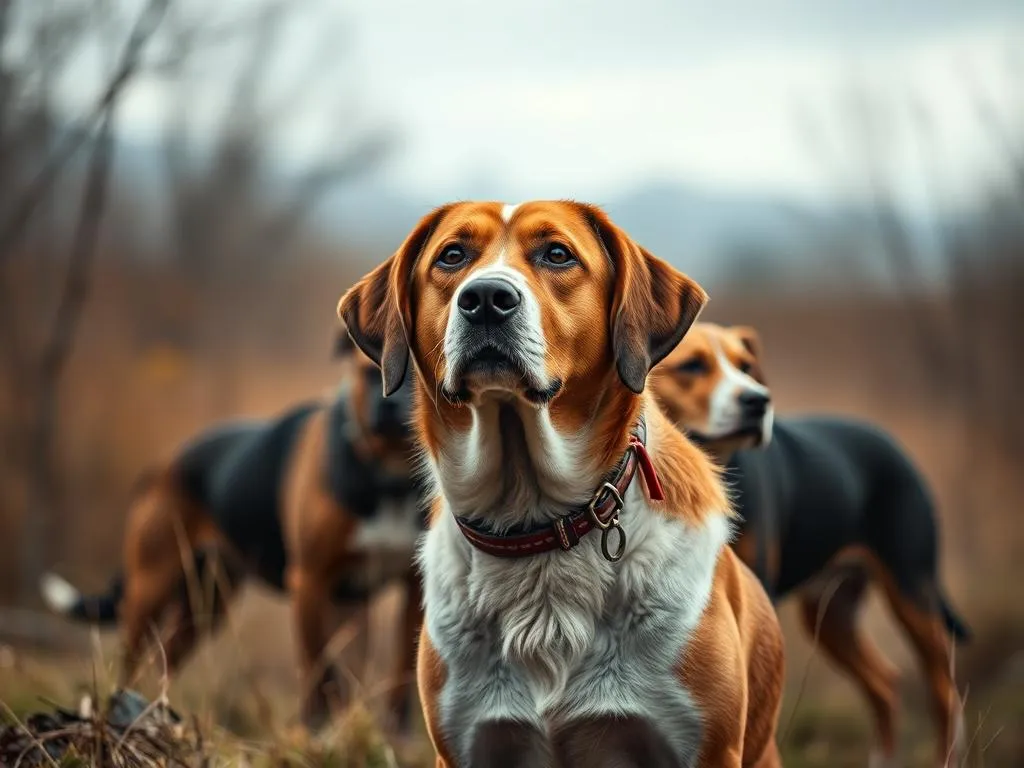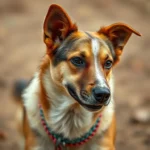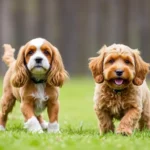
Hunting dog breeds are a vital part of the hunting community, serving various roles that enhance the overall experience of hunting. These breeds have been specifically developed to assist hunters in locating, tracking, and retrieving game, making them invaluable companions in the field. Understanding the significance of these dogs and the factors to consider when choosing one can greatly influence your hunting success and enjoyment.
Characteristics of Hunting Dog Breeds
Physical Attributes
The physical characteristics of hunting dog breeds vary significantly among different types, which can affect their performance in the field.
- Size and Weight: Hunting dogs can range from small breeds like the Beagle to larger breeds like the German Shepherd. The size often correlates with the type of game they are used to hunt.
- Coat Types: The coat can be short, long, or water-resistant, depending on the breed and the environment they are expected to work in. For example, a Labrador Retriever has a water-resistant coat that makes it ideal for retrieving in wet conditions.
- Color Variations: While color is primarily a cosmetic characteristic, some hunters prefer specific colors that may assist in camouflage during hunting sessions.
Temperament and Behavior
The temperament of hunting dog breeds is crucial for their performance and compatibility with owners.
- Energy Levels: Most hunting dogs possess high energy levels, requiring ample exercise to prevent boredom and destructive behavior.
- Trainability: Many hunting breeds are known for their intelligence and eagerness to please, which makes training more manageable. However, some breeds may be more stubborn than others.
- Socialization Needs: Early socialization is essential for hunting dogs to become well-rounded and confident in various environments, especially if they will be exposed to other dogs and wildlife.
Specialized Skills
Different hunting dog breeds exhibit unique skills that are tailored to specific hunting tasks.
- Tracking Ability: Breeds like the Bloodhound excel in tracking due to their exceptional sense of smell, making them ideal for searching and finding game.
- Retrieving Skills: Retrieving breeds, such as the Golden Retriever, are known for their ability to fetch game from land and water, often bringing it back gently to the hunter.
- Pointing and Flushing Techniques: Pointing breeds, like the German Shorthaired Pointer, signal the presence of game birds by freezing in position, while flushing breeds, such as the English Springer Spaniel, are trained to flush birds out of cover for the hunter to take a shot.
Types of Hunting Dog Breeds
Pointing Breeds
Pointing breeds are trained to locate game birds and indicate their presence to the hunter.
- Definition and Role: These dogs use their keen sense of smell to find birds and then point towards them, allowing hunters to approach.
- Examples: The German Shorthaired Pointer and English Pointer are two prominent examples known for their agility and strong instincts.
- Ideal Uses and Environments: Pointing breeds thrive in open fields and woodlands where game birds are likely to be found.
Retrieving Breeds
Retrieving breeds specialize in fetching game after it has been shot, whether from land or water.
- Definition and Role: Their primary role is to retrieve game without damaging it, ensuring that the hunter receives intact specimens.
- Examples: The Labrador Retriever and Golden Retriever are among the most popular retrieving breeds, known for their gentle mouths and enthusiastic retrieving skills.
- Ideal Uses and Environments: They are particularly effective in environments that involve water, such as lakes and rivers, as well as open fields.
Flushing Breeds
Flushing breeds are trained to locate game birds and flush them out for the hunter.
- Definition and Role: These dogs are adept at disturbing birds from their hiding spots, allowing hunters to take shots when the birds take flight.
- Examples: The English Springer Spaniel and Cocker Spaniel are classic examples of flushing breeds, known for their energy and agility.
- Ideal Uses and Environments: Flushing breeds work well in dense cover and thickets where birds like to hide.
Tracking Breeds
Tracking breeds excel in following scent trails, making them invaluable for tracking wounded game.
- Definition and Role: These breeds are trained to use their sense of smell to follow a trail left by injured animals.
- Examples: The Bloodhound and Basset Hound are well-known tracking breeds, recognized for their exceptional olfactory capabilities.
- Ideal Uses and Environments: They are particularly useful in various terrains, especially in woods and fields where animals may leave scent trails.
Factors to Consider When Choosing a Hunting Dog
Lifestyle Compatibility
Choosing a hunting dog requires assessing your lifestyle to ensure compatibility.
- Activity Level: Consider how much time you can dedicate to exercising and playing with your dog. High-energy breeds require regular, vigorous exercise.
- Space Requirements: Adequate space is crucial. Larger breeds often need more room to roam and play, while smaller breeds may adapt better to smaller living spaces.
Experience Level
Your experience with dogs can influence the type of hunting dog you should choose.
- First-Time Owners vs. Experienced Handlers: If you are a first-time dog owner, consider breeds known for their trainability and gentler temperament. Experienced handlers may opt for more challenging breeds requiring advanced training.
- Training Needs: Some breeds may require more intensive training efforts, so it’s essential to choose a breed whose needs align with your skills and time availability.
Specific Hunting Needs
Your specific hunting goals and environment play a significant role in breed selection.
- Type of Game: Different breeds excel at hunting various types of game. For instance, if you plan to hunt waterfowl, a retrieving breed like the Labrador Retriever would be ideal.
- Terrain and Environment: The hunting environment, whether it be dense forests, open fields, or wetlands, can impact which type of hunting dog is best suited for your needs.
Training and Socialization for Hunting Dogs
Basic Obedience Training
Establishing a foundation of obedience training is paramount for all hunting dogs.
- Importance of Commands: Teaching basic commands such as sit, stay, and come is essential for ensuring your dog’s safety in the field and enhancing hunting performance.
- Recommended Training Techniques: Positive reinforcement methods, such as treats and praise, are effective for training hunting dogs and promoting good behavior.
Specialized Hunting Training
Once basic obedience is established, specialized training is necessary for hunting tasks.
- Techniques for Tracking and Retrieving: Using scent trails and retrieving dummies can help develop your dog’s skills in tracking and retrieving game.
- Use of Decoys and Calls: Introducing decoys and calls in training can simulate real hunting scenarios, preparing your dog for actual hunts.
Socialization
Socialization is crucial for developing a well-rounded hunting dog.
- Importance of Early Socialization: Early exposure to various environments, people, and other animals can help prevent behavioral issues later on.
- Best Practices for Socializing Hunting Dogs: Regular trips to parks, obedience classes, and controlled playdates with other dogs can enhance social skills.
Health Considerations for Hunting Dog Breeds
Common Health Issues
Being aware of health issues can help you maintain your dog’s well-being.
- Breed-Specific Conditions: Some breeds are prone to specific health issues, such as hip dysplasia in large breeds like the German Shepherd.
- Importance of Regular Vet Check-ups: Regular veterinary visits are essential for early detection and treatment of potential health problems.
Nutrition and Diet
Proper nutrition supports the health and performance of active hunting dogs.
- Nutritional Needs of Active Hunting Dogs: High-quality dog food with adequate protein and essential nutrients is crucial for maintaining energy levels.
- Recommended Diet Plans: A diet rich in protein, healthy fats, and carbohydrates, along with regular feeding schedules, will keep your hunting dog in peak condition.
Exercise Requirements
Regular exercise is vital for keeping hunting dogs healthy and happy.
- Daily Exercise Routines: Daily walks, runs, and play sessions should be incorporated into your dog’s routine to burn off excess energy.
- Activities to Keep Hunting Dogs Engaged: Activities such as agility training, fetching games, and swimming can help keep your dog mentally and physically stimulated.
Caring for Your Hunting Dog
Grooming Needs
Maintaining your dog’s coat is essential for their health and performance.
- Coat Care: Regular brushing is important for all breeds, with specific grooming needs varying based on coat type.
- Nail Trimming and Ear Cleaning: Regular nail trimming and ear cleaning prevent discomfort and potential health issues, particularly in breeds with floppy ears.
Equipment Essentials
Having the right equipment enhances the hunting experience for both you and your dog.
- Recommended Collars and Leashes: A sturdy collar and leash are essential for training and keeping your dog safe during hunts.
- Best Hunting Gear for Dogs: Items such as hunting vests, boots, and life jackets for water retrieves are recommended to protect your dog in various environments.
Seasonal Care
Adjusting your dog’s care based on the season is important for their comfort and health.
- Adjusting Care for Different Weather Conditions: Protect your dog from extreme temperatures with appropriate clothing and shelter.
- Handling Hunting Dogs During Off-Season: Maintain regular exercise and training routines even during the off-season to keep your dog in shape.
Conclusion
Understanding the characteristics, types, and care of hunting dog breeds is essential for any hunting enthusiast. Each breed offers unique skills and traits that can enhance your hunting experience. By carefully considering your needs and lifestyle, you can choose the perfect hunting companion. Owning a hunting dog not only brings joy and fulfillment but also creates lasting bonds through shared experiences in the great outdoors. Embrace the adventure and explore the world of hunting dogs, ensuring that you and your new companion are well-prepared for all your hunting endeavors.









